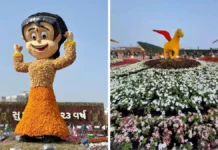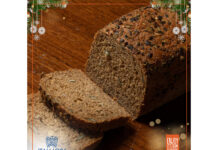 H N Verma of Sunnyvale is a scholar of world history known for his works like ‘100 Great Indians’ and ‘Decisive Battles of India.’ He has now turned his attention to the deadly flaws in three largest religions of the world – Jihad in Islam, caste in Hinduism and conversions in Christianity. ‘Jatpat or Caste – The Curse of India’ is the second in the trilogy; the first on Jihad in Islam having won high acclaim.
H N Verma of Sunnyvale is a scholar of world history known for his works like ‘100 Great Indians’ and ‘Decisive Battles of India.’ He has now turned his attention to the deadly flaws in three largest religions of the world – Jihad in Islam, caste in Hinduism and conversions in Christianity. ‘Jatpat or Caste – The Curse of India’ is the second in the trilogy; the first on Jihad in Islam having won high acclaim.
Unlike Islam and Christianity, whose main defects hurt other religions, casteism, according to Verma, eats into the own vitals of Hinduism.
Because of the caste divisions the Hindus failed to stand up unitedly against invaders and India became easy prey for Muslim and British conquerors.
Verma traces the origins of casteism through history and Indian scriptures down the ages and opines that the original purpose was an orderly organization of society through division of labor. The function of Brahmins was to conduct religious rites, Kshatriyas to protect society; Vaishyas business and trade; Shudras manual services and untouchables to do menial jobs. The varnas were designated to a person based on one’s aptitude, quality, mental state and characteristic.
The degeneration of this system began with the top three varnas, led by the Brahmins, wanting to establish and maintain their superiority. Hierarchical Indian society through the ages has been marked by lack of competition. One way of maintaining your superiority is to suppress those who might compete with you in skill and conduct. The Brahmins found that for survival, their intellectual attainments were not enough. They evolved rites and rituals to help their sustenance and material prosperity. Exploiting the belief of Hindus in multitudes of gods, they would downgrade and throw out as outcastes those opposing their diktat, as divine punishment administered by the Brahmins. Practices like Yajnopaveet were used to legitimize certain privileges to the Kshatriyas and Vaishyas but denied to the Shudras, who were also denied education. Another ploy was non-availability of scriptural texts in the people’s languages thus confirming the Brahmins vested interest in keeping the masses ignorant.
The book is divided into two parts. Part one gives an overview of the Hindu scriptures and through them the evolution of the caste system. Part two deals with the caste system in historical perspective during the alien rule of Islam and the British, and after Indian independence. Verma says that neither the Islamic rulers nor the British interfered in the caste system or attempted to improve the lot of the Dalits. Giving examples, he says that during Islmaic rule, Brahmins prohibited sea voyage for Hindus. Narrow minded Dharmacharyas gave harsh punishments to those who dared to go abroad. Justice Bannerjee of the Calcutta High Court could not leave India in response to an invitation from the Royalty for fear he would be branded outcaste, and the Maharaja of Travancore suffered punishment for sea voyage.
After Independence several aspects of prejudices of the caste system have declined but an emphasis on group identity has strengthened. The policy of reservations has done a good deal for the Dalits but in practice the Dalits complain of discrimination from colleagues. Even the rich Dalits are treated with disdain. Verma quotes one report about a rich Dalit called Pippal of Agra who owns a hospital, a shoe factory, car dealership and a publishing company, lives in a rich colony but is still treated as a Dalit. Dalit students living in hostels complain of excesses by the higher caste students.
Changing India into an open competitive society will require some doing. Verma has done a great job in highlighting flaws in Hindu society. It can help Indian administrators in taking corrective measures.
Mr Verma’s book could have become more readable if he had taken care about spellings and misjoining of words. These could easily have been remedied by a spellcheck. The title of the book is also confusing. The Hindi word ‘Jatpat’ means “quickly” and it is a verb. The correct spelling to denote caste should have been “Jaatpaat.’
Vinod Dhawan
India Post News Service






